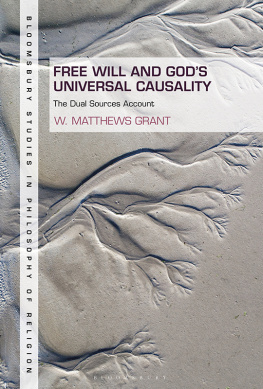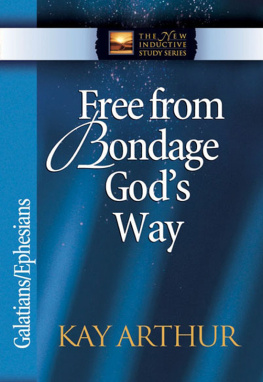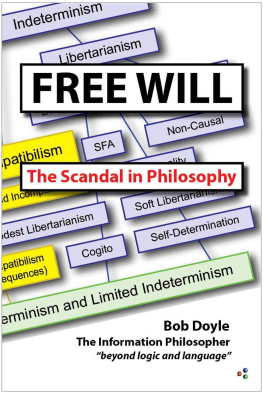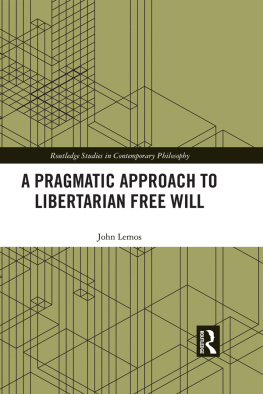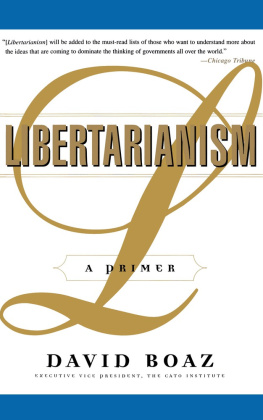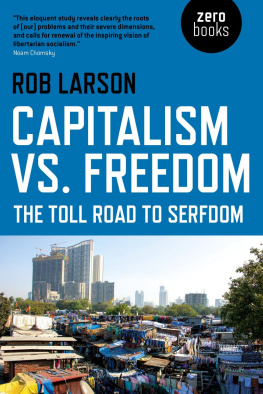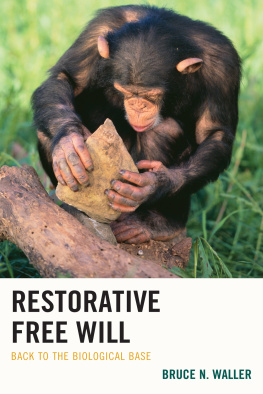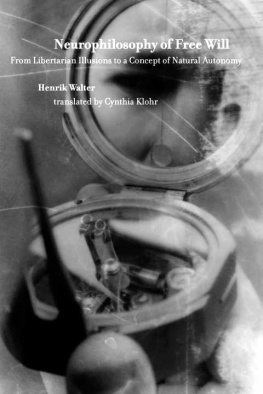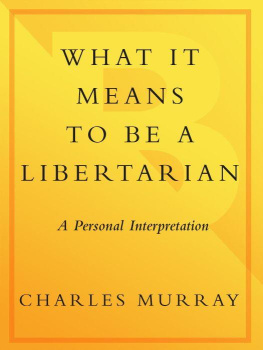Free Will and Gods
Universal Causality
Bloomsbury Studies in Philosophy of Religion
Series Editor: Stewart Goetz
Editorial Board: Thomas Flint, Robert Koons, Alexander Pruss, Charles Taliaferro, Roger Trigg, David Widerker, Mark Wynn
Titles in the Series
Freedom, Teleology, and Evil by Stewart Goetz
The Image in Mind: Theism, Naturalism, and the Imagination by Charles Taliaferro and Jil Evans
Actuality, Possibility, and Worlds by Alexander Robert Pruss
The Rainbow of Experiences, Critical Trust, and God by Kai-man Kwan
Philosophy and the Christian Worldview: Analysis, Assessment and Development edited by David Werther and Mark D. Linville
Goodness, God and Evil by David E. Alexander
Well-Being and Theism: Linking Ethics to God by William A. Lauinger
Thinking through Feeling: God, Emotion and Passibility by Anastasia Philippa Scrutton
Gods Final Victory: A Comparative Philosophical Case for Universalism by John Kronen and Eric Reitan
Free Will in Philosophical Theology by Kevin Timpe
Beyond the Control of God? edited by Paul M. Gould
The Mechanics of Divine Foreknowledge and Providence by T. Ryan Byerly
The Kalm Cosmological Argument: Philosophical Arguments for the Finitude of the Past edited by Paul Copan with William Lane Craig
The Kalm Cosmological Argument: Scientific Evidence for the Beginning of the Universe edited by Paul Copan with William Lane Craig
Free Will and Gods
Universal Causality
The Dual Sources Account
W. Matthews Grant

I would like to thank my undergraduate professors at Wake Forest University, especially Jeffery Kinlaw, Charles Lewis, and Ralph C. Wood; the existence of this book testifies to their enduring influence. I would like to thank my graduate professors at Fordham University, in particular Brian Davies, John Greco, and Joseph Koterski, who served as the committee for my dissertation where ideas for the book took incipient form almost two decades ago. I would like to thank my colleagues from the department of philosophy at the University of St. Thomas; I am a much better and happier philosopher for having such wonderful examples, teachers, and friends as you have been. I would like to thank the University of St. Thomas for support through a sabbatical and a research grant, and Thomas D. Sullivan for support through his Aquinas Chair. I would like to thank Alfred Mele, the John Templeton Foundation, and the Big Questions in Free Will Project out of Florida State University for generously funding a yearlong Theology of Free Will fellowship for work on this project in 20122013.
Although most of this book is new, I am grateful for permission to reuse or draw from some previously published material. draws from my Divine Simplicity, Contingent Truths, and Extrinsic Models of Divine Knowing, Faith and Philosophy 29 (2012): 25474.
I owe special gratitude to those who have offered written comments on various parts of the book and those who have helped me by extensive correspondence or conversation on its topics. My colleague Tim Pawl deserves first mention for commenting on one or another version of every chapter, serving as a frequent sounding board for arguments and ideas, and being a continual source of encouragement. Others who have helped with this project, in some cases immensely, by way of comments, conversation, or encouragement include Gary M. Atkinson, Stephen L. Brock, Jeffrey E. Brower, David. B. Burrell, David Clemenson, Brian Davies, Nicolas Feddema, Thomas P. Flint, Gloria Frost, the late Germain Grisez, Jonathan D. Jacobs, Andrew Jaeger, Neal Judisch, Joseph Koterski, John D. Kronen, Patrick Lee, Stephen A. Long, James D. Madden, R.J. Matava, the late Hugh J. McCann, Ross McCullough, Sandra L. Menssen, Chris Mullen, Thomas M. Osborne Jr., Alexander R. Pruss, Katherin A. Rogers, Michael Rota, Mark K. Spencer, Jaime Spiering, Eleonore Stump, Kevin Timpe, Michael Torre, and my Philosophy of God students over the years. My sincere apologies to anyone I have missed. And my gratitude, also, to those I reference in the book, from whom I have learned much.
I would like to thank my editors at Bloomsbury, especially Colleen Coalter, Becky Holland, and Helen Saunders, for all they have done to bring this book to print. I would also like to thank the series editor, Stewart Goetz, as well as the anonymous reviewers of the proposal and manuscript.
Finally, I am deeply grateful to my dear wife, Kristen, and our daughters, Elizabeth and Cecilia, for their love, support, and the sacrifice of much family time so that I could see this project through. To these I add my loving and supportive parents, Walter and Ann Grant. All of these have given me more than I can say and certainly more than I deserve. I dedicate this book to my parents, Kristen, and the girls.
According to traditional theism, God is the universal cause, who causes all being distinct from himself. An implication of this doctrine is that creaturely acts are caused by God. With few exceptions, contemporary philosophers assume that a creaturely act caused by God cannot be free in the libertarian sense. The present volume challenges this assumption, showing that libertarian theists need not reject a central tenet of the classic theological tradition. In the course of this challenge, a comprehensive alternative to the currently most popular approaches for combining theism with libertarian freedom will emerge.
In this introductory chapter, I first set out the doctrine of divine universal causality (DUC), displaying its deep roots within theistic tradition, giving the doctrine a precise definition, and drawing out its implications for Gods relationship to creaturely action. Then, after presenting the libertarian conception of freedom and explaining why it has proven attractive to many theists, I give evidence of, and suggest reasons for, the widespread assumption that a creaturely act being caused by God precludes the act being free in the libertarian sense. Finally, I introduce my approach to resolving the conflictwhat I call Dual Sourcesoffering a brief preview of how the approach will be developed in the chapters that follow and explaining the approachs roots in the scholastic philosophical-theological tradition.
Theists have traditionally held that God is the universal cause, who causes all being distinct from himself. Augustine, for example, teaches that Gods hidden power causes all that exists in any way to have whatever degree of being it has; for without Him, it would not exist in this way or that, nor would it have any being at all.
With such impressive support from the tradition, it is not surprising that contemporary philosophers of religion often include Gods universal causality in accounts of what theists have traditionally believed. Thus, Alvin Plantinga notes that most Christians affirm Gods control over all things and the dependence of all else on his creative and sustaining activity.
Statements of this sort are easily multiplied. Michael Bergmann and Jeffrey Brower consider traditional theism to hold that everything distinct from God depends on Gods creative activity for its existing.
What, then, is numbered among the effects God causes? Some of the foregoing statements are more explicit than others, but the natural reading of most of them would suggest that God causes every entity whatsoever that is not identical to God. Whether this reading is the one intended by all the authors quoted, it is certainly the traditional view. It is not, therefore, only creaturely objects or substances that God has traditionally been thought to cause. As Anselm insists, every quality, every action, everything that has existence owes its being at all to God.
Next page
